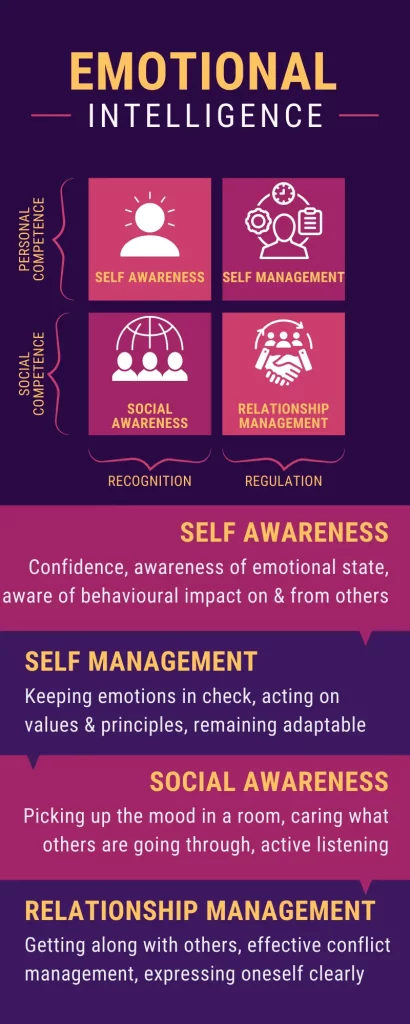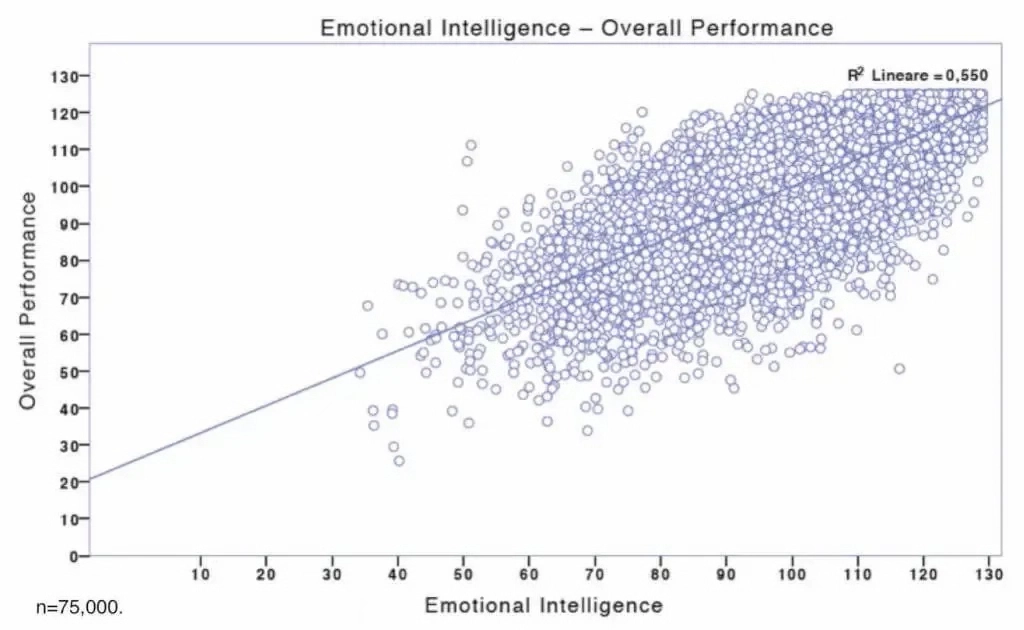Why Rafiki
Pricing


Pricing
Solutions

RevOps Leaders
Synchronize revenue generating functions

SDR Leaders
Get your team aligned and Coach your Reps 3x faster at scale

Sales Leaders
Unlock pipeline truth, drive confident forecasts

Imagine a world where sales aren't just transactions but a symphony of human connections. In this realm, the maestro is the one who understands not just the notes, but the emotional undertones that make the music resonate. This is the world of Emotional Intelligence in sales, a domain where understanding and empathy play as crucial a role as any product or pitch.
McKinsey predicts a 26% surge in the demand for emotional skills across all industries in the USA by 2030.
So, let's embark on a journey to decode the enigma of Emotional Intelligence in sales.

At its core, Emotional Intelligence (EI) is the unsung hero in the world of business acumen. Think of it as the internal compass guiding our interactions, a lighthouse shining through the fog 🌫️ of human complexities.
It's about understanding, managing, and effectively expressing one's own emotions, and empathetically interpreting others' emotions. In the sales arena, EI becomes your secret weapon, empowering you to navigate through the nuanced waters of customer relationships with finesse and intuition.
Contrast this with IQ, the traditional measure of intelligence, which is akin to knowing all the roads on a map. EI, on the other hand, is about understanding the weather that affects the journey on these roads. It's not just about knowing the right things; it's about feeling the right way about them.
In the bustling marketplace 🏪 of today, where human connection often gets lost in the digital shuffle, EI stands out as a beacon. It helps sales professionals not just reach their targets but truly connect, building relationships that are more than just a means to an end. It's not just about closing deals; it's about opening doors to genuine, long-lasting connections.
In the tapestry of a sales team, each thread – the culture, background, beliefs, and priorities of each member – adds a unique color and texture. This diversity is a treasure trove for building EI.
Culture and background shape how we express and perceive emotions. What might be a straightforward approach in one culture could be perceived as too aggressive in another. For a sales professional, being cognizant of these nuances is like being a skilled chef who knows just the right amount of spice to add to a dish. It's about finding that perfect balance that resonates with each customer.
Empathy, a cornerstone of EI, thrives on this diversity. It's about stepping into your customer's shoes 👞, which might be from a different part of the world 🌍. This understanding leads to more than just sales; it fosters a relationship based on respect and genuine connection.
By embracing the diverse emotional landscapes of their teams and customers, salespeople can turn every interaction into an opportunity to build a deeper, more meaningful connection.
Before we get into the methods, let's take a look at some data. The graph below shows the results from a study which examined over 75,000 professionals from over 15 workplace sectors and 126 countries. As shown, there is an extremely strong positive correlation amongst emotional intelligence scores and overall performance and success scores.

But transforming a sales team into an EI-powered engine requires patience, care, and the right tools. For a sales leader, the mission is to nurture 🪴 this environment, where emotional intelligence blossoms alongside sales skills.
The first tool in this quest is self-awareness. Encourage your team to reflect on their emotional strengths and weaknesses. It's like holding up a mirror to their sales approach, understanding how their emotions weave into their interactions with clients. Ask your team to record their calls using Rafiki and review the exact points in sales conversations where they could have handled it better. You can even use Smart Call Scoring to quantify this review process.
Next, comes the art of emotional regulation. It’s about teaching your team to be the calm in the customer's storm, to respond rather than react. Think of it as a skill akin to a pilot 🧑🏽✈️navigating ✈️ through turbulence; it's about maintaining composure and direction amidst emotional upheavals.
Not to equate the miracle this hero and his co-pilot did to sales, but if you've listened to the cockpit recording of Captain Sully Sullenberger during the US Airways Flight 1549 incident, you'd know how powerful training can be in mastering emotional regulation.
Then, there's empathy. This is about shifting the focus from ‘making a sale’ to ‘making a connection.’ It's like changing the lens from a microscope 🔬 to a wide-angle camera 📷, seeing the full picture of the customer's needs and emotions.
Finally, effective communication ties it all together. It's not just about what is said, but how it's said. This involves tuning the message not just to the words but to the emotional frequency of the conversation.
Using Rafiki's advanced analytics, your sales teams can understand how well they are communicating the value proposition and handling objections.
Empathy in sales is like a compass guiding a ship through uncharted waters. It's about understanding not just the words spoken by the customer, but the unspoken emotions and needs behind them. Empathy allows sales professionals to connect on a deeper level, building trust and rapport that goes beyond the superficial layers of a transaction.
In the world of sales, empathy translates into actively listening and responding to customers' concerns and desires. Like being a detective 🕵🏽♂️ with a heart 💓, where you're not just solving a case but also understanding the story behind it. This approach leads to solutions that resonate on a personal level, turning a pitch into a meaningful conversation.
Moreover, empathy fosters stronger, longer-lasting customer relationships. Customers feel valued and understood, which in turn, creates loyalty and advocacy for your brand.
For sales leaders, cultivating a culture of empathy means encouraging their teams to walk a mile in their customers' shoes. Training them to read between the lines, to sense the emotional undercurrents, and to respond with genuineness and care.
Using Rafiki's Topic Tracker, sales leaders and managers can keep track of specific keywords mentioned during sales conversations. Tracking keywords like "unhappy", "problem" or "cancel", you can zip to portions in call recording where customer is describing their issue. Combined with Rafiki's Playlists, sales leaders can create a library of objections and dissatisfactory elements. This library can then be used to train your team on how to think like the customer, their issues and needs.
Integrating EI into sales coaching is not without its hurdles. It requires unlearning some old steps and mastering new rhythms.
One of the primary challenges is resistance to change. Sales teams, often accustomed to traditional metrics and methods, may initially view EI as an abstract concept. It's like trying to convince a group of mathematicians 👩🏽🔬 to appreciate abstract art 🖼️; it requires a shift in perspective.
Another obstacle is the misconception that EI can't be learned or taught. Some believe that traits like empathy and self-awareness are innate, not skills that can be developed. This belief comes from not recognizing the power of training and practice.
Measuring the impact of EI on sales performance also presents a challenge. Unlike straightforward sales metrics, the benefits of EI are often intangible and long-term. It's like measuring the growth of a sapling 🌱; you'd have to get a timelapse shot over a long time to see the full growth. Patience and faith in the process are essential.
Finally, integrating EI into a diverse team requires an understanding of different emotional landscapes. Not every technique will resonate with every team member. As always, there's no one-size-fits-all approach.
These challenges, however daunting, are not insurmountable. With commitment and a strategic approach, integrating EI into sales coaching can lead to a more effective, empathetic, and ultimately successful sales force.
For sales leaders aiming to weave Emotional Intelligence into their team's fabric, here are some actionable steps to embark on this transformative journey:
As we close this exploration into Emotional Intelligence in sales, it's clear that the future of effective selling is intricately tied to the mastery of EI. Sales leaders can use EI to steer their teams towards more meaningful and successful customer engagements.
Enhance your sales team's emotional intelligence
The path ahead is not just about numbers and targets; it's about building genuine relationships and understanding the emotional heartbeat of the customer.
Embrace Emotional Intelligence with Rafiki, and watch your team flourish in this new era of emotionally intelligent selling.